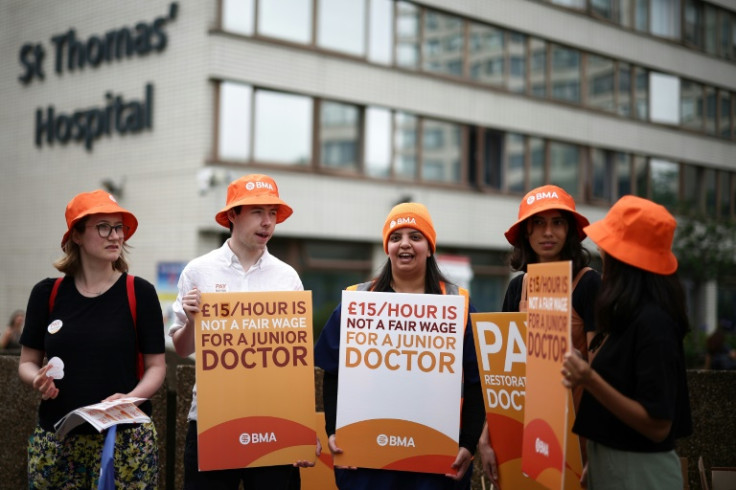NHS Crisis: Health Service Faces Threat As 97% of New Doctors Demand Jobs And Pay To Avert Disaster
Ninety-seven percent of first-year resident doctors vote for industrial action in row over job security and 21% pay erosion.

The National Health Service (NHS) is facing the immediate threat of a new, highly disruptive wave of strike action after first-year resident doctors in England delivered a massive mandate for industrial action.
The vote for the strike focuses not just on the ongoing pay dispute, but on a shocking row over job security and employment prospects for new medical graduates. This development significantly escalates the ongoing crisis in the health service, as future doctors feel they have no option left but to walk out.
The British Medical Association (BMA) confirmed that the ballot of first-year resident doctors delivered an overwhelming result. The vote saw a staggering 97% (or 3,950) voting in favour of strike action, demonstrating a near-unanimous resolve among the young medical cohort. Furthermore, this mandate was delivered on a high turnout of 65%.
The Threat Of Unemployment In The NHS
The severity of the vote stems from major concerns over employment prospects and job stability within the NHS. According to the BMA, a shocking percentage of their members currently face instability.
- The union reported that 34% of resident doctors surveyed said they had no substantive employment or regular work from August 2025.
- This problem is even more severe for slightly more experienced resident doctors: the figure rose to more than half (52%) among FY2 (foundation year two) doctors.
This threat of unemployment in a medical profession already struggling with staff shortages has provided a clear, strong mandate for the BMA to pursue industrial action. The union confirmed that this jobs dispute is now linked to their existing demand for pay restoration.
Pay Erosion And The Demand For A Solution
The vote ensures that job security is now inseparable from the ongoing talks with the Government concerning doctors' pay. The BMA is currently pushing for the Government to restore the significant pay cuts doctors have faced over the past decade. The union notes that resident doctors have endured a considerable 21% pay erosion since 2008.
The BMA has issued a stern warning that these talks now have a hard deadline: 'no strikes are currently planned, but current talks with the Government on pay 'will now have to produce a solution on jobs as well as the 21% pay erosion resident doctors have endured since 2008 to avoid future action.''
The overwhelming vote, therefore, serves as a direct notice to the Government that only a comprehensive solution addressing both pay erosion and the lack of secure employment for new graduates will avert future industrial disruption. The pressure is now squarely on government negotiators to prevent a fresh wave of strikes from the doctors who represent the future of the NHS.
Will the Government agree to a deal that meets the demands of the resident doctors and avoids a strike? Follow IBTimes UK for all the latest developments on this breaking health story.
© Copyright IBTimes 2025. All rights reserved.





















